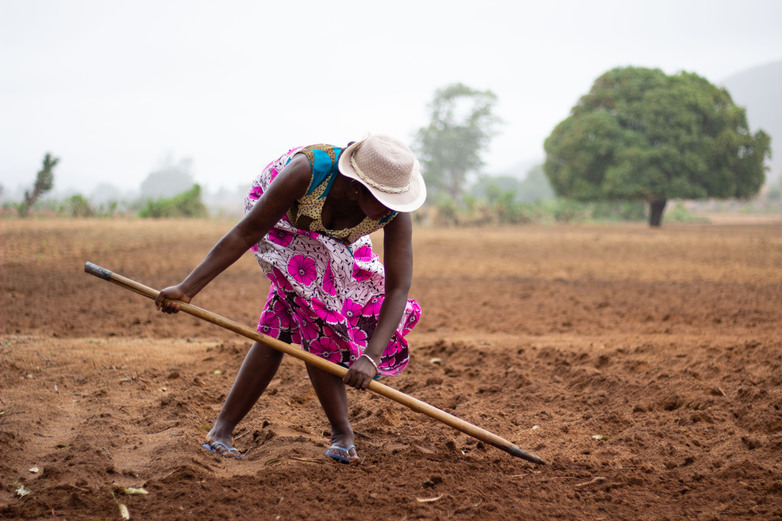Strengthening women’s rights, resources and representation in the sustainable management of land resources
Women’s Empowerment for Resilient Rural Areas (WE4R)
 © GIZ/Sumi Teufel
© GIZ/Sumi Teufel
Women’s Empowerment for Resilient Rural Areas (WE4R)

German Federal Ministry for Economic Cooperation and Development (BMZ)

Global

2024 to 2028

Secretariat of the United Nations Convention to Combat Desertification (UNCCD)
Secretariat of the United Nations Convention to Combat Desertification (UNCCD)

Rural development
People in rural areas are more vulnerable to climate change impacts, crises and disasters. Women are particularly affected as they often do not have the same rights as men, their access to resources is more limited and they are not represented to the same extent in decision-making processes.
Empowering women in rural areas in managing land economically and ecologically contributes to gender equality and the Rio Conventions – the United Nations Convention to Combat Desertification (UNCCD), the Convention on Biological Diversity (CBD) and the United Nations Framework Convention on Climate Change (UNFCCC).
The rights, resources and representation of women in rural areas are strengthened with regard to the sustainable use of land resources.
 © GIZ/Rossy-Heriniaina
© GIZ/Rossy-HeriniainaThe project works with global and national partners to support women in rural areas who are particularly affected by soil degradation, biodiversity loss and climate change. It cooperates with the Secretariats of the Rio Conventions, national ministries and local and regional civil society organisations.
It also strives to pool expertise and experience on gender-specific approaches to ensure sustainable and climate-friendly land management. Together with its partners, the project feeds this knowledge into global and national dialogues that promote the implementation of the Rio Conventions.
The project focusses on women’s interests with regard to the use of land. It promotes individuals and organisations that are committed to strengthening the rights, resources and representation of women in political decisions and planning (gender change agents). To this end, the project finances measures led by civil society actors and promotes networking among gender change agents.
In Mali, Madagascar and Kenya, the project is implementing concrete measures to promote women’s rights, access to resources and representation. It makes use of lessons learned at country level and together with its partners incorporates them into global level processes.
Last update: June 2024